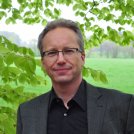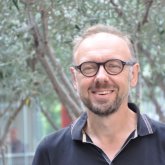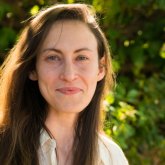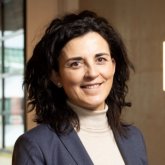Enhance the fundamental understanding of the structure of electrode-electrolyte interfaces and their response to applied voltages and imposed currents. Perform high resolution Atomic Force Microscopy (AFM) experiments and analyze them in collaboration with a theory and molecular simulation PhD-colleague at Leiden University and with your colleagues in the Physics of Complex Fluids (PCF) and Photocatalytic Synthesis groups (PCS) at the University of Twente.
Electrochemical processes play a major role in the current energy transition. They make batteries, fuel cells, and electrolyzers work. Despite this importance, the properties of electrode-electrolyte interfaces are at present rather poorly understood because they are extremely difficult to characterize at the molecular scale. Electrochemical (EC) AFM bares the promise to combine atomic scale imaging with force spectroscopy to probe the structure of these interfaces and their response to EC reaction conditions (think of changes in the hydration structure, ion adsorption, and surface reconstruction). However, the interpretation of such measurements remains tentative without detailed modeling. In the current project, Prof. Mugele’s PCF group in Twente and Prof. Doblhoff-Dier’s Theoretical Electrochemistry group in Leiden team up to combine high resolution AFM experiments (PhD 1, University of Twente) and atomistic modelling (PhD 2, Leiden University) to address these challenges. Next to your AFM measurement at PCF, you can also explore the fabrication and characterization of catalyst nanoparticles with Prof. Mul’s PCS group.
If you are interested in the high resolution AFM experiments at the PCF chair of our Faculty TNW, please send your application via the “Apply now“ button below, before 31-112-2024.
If you are interested in the theory position at Leiden University, please contact Katharina Doblhoff-Dier. The position will become available soon (or may already be available) on the Leiden University websit.
This project is embedded in the Advanced Nano-electrochemistry Institute Of the Netherlands (ANION), a ‘Gravitation’ program bringing together the expertise of the top researchers in the field nationwide.
Information and application
Are you interested in this position? Please send your application via the 'Apply now' button below and include:
- A cover letter (maximum 2 pages A4), emphasizing your specific interest, qualifications, motivations to apply for this position.
- A Curriculum Vitae, including a list of all courses attended and grades obtained, and, if applicable, a list of publications.
- The names, affiliations and email addresses of three references.
- An IELTS-test, Internet TOEFL test (TOEFL-iBT), or a Cambridge CAE-C (CPE). Applicants with a non-Dutch qualification and who have not had secondary and tertiary education in English can only be admitted with an IELTS-test showing a total band score of at least 6.5, internet. TOEFL test (TOEFL-iBT) showing a score of at least 90, or a Cambridge CAE-C (CPE).
(*): applications will be considered until the position is filled.
For more information regarding the experimental position in Twente, please contact Prof. Frieder Mugele (f.mugele@utwente.nl).
For the theoretical/numerical part in Leiden, please contact Prof. Katharina Doblhoff-Dier (k.doblhoff-dier@lic.leidenuniv.nl)
About the department
The PCF and the PCS group in Twente are both part of the Department of Chemical Engineering and members of the MESA+ Institute for Nanotechnology. Both provide a stimulating environment for interdisciplinary collaboration.
About the organisation
The Faculty of Science & Technology (Technische Natuurwetenschappen, TNW) engages some 700 staff members and 2000 students in education and research on the cutting edge of chemical technology, applied physics and biomedical technology. Our fields of application include sustainable energy, process technology and materials science, nanotechnology and technical medicine. As part of a people-first tech university that aims to shape society, individuals and connections, our faculty works together intensively with industrial partners and researchers in the Netherlands and abroad, and conducts extensive research for external commissioning parties and funders. Our research has a high profile both in the Netherlands and internationally and is strengthened by the many young researchers working on innovative projects with as doctoral candidates and post-docs. It has been accommodated in three multidisciplinary UT research institutes: Mesa+ Institute, TechMed Centre and Digital Society Institute.





